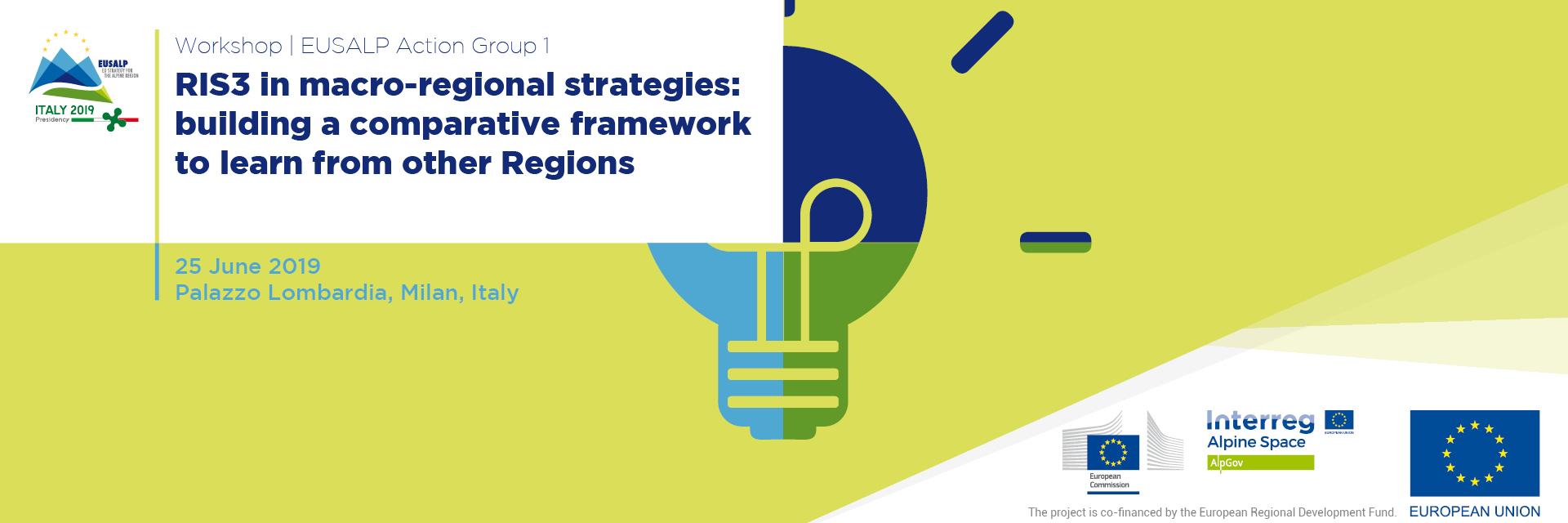Date / Heure
Date(s) - 25 Jun 2019
14 h 00 min - 18 h 30 min
Emplacement
Milan - Italy

In the current debate on post 2020 European Cohesion Policy, it is be important to capitalize on two pillars of the ongoing policy programmes: the transnational macro-regional strategies and the research and innovation strategies for smart specialization (RIS3). The EU Macro-Regional Strategies, initially launched in the 2007-2013 programming period, align with the EU’s goals of inclusive and sustainable development, by enhancing synergies among neighbouring regions. The core of all four strategies is to enhance complementarities and synergies among regions, with a bottom-up regional policy design across the many countries involved and provide opportunities for cross-fertilizations across countries and domains of interventions, from education to health or social innovation.
The workshop aims at discussing which comparative framework could help policymakers and stakeholders to improve their innovative performance by learning from other regions, and what synergies and complementarities can be enhanced within the Macro-Regional Strategies. The workshop will focus on the results achieved, three years after the launch of the European strategy for the Alpine region, for the objective of Action Group 1: “to develop an effective research and innovation ecosystem through the identification of the key strategic sectors where cooperation in Research and Innovation can affect either the economy or society”. In particular, one of the results of the work of AG1 in the context of the project AlpGov will be presented, that is, the comparative analysis of the priorities of the Smart specialization strategies (S3) of the regions involved in EUSALP.
Programme and registration
Policy-makers, academics and other stakeholders are invited to this workshop. The event will also be web-streamed. Please find more information on the programme and the registration form here.








